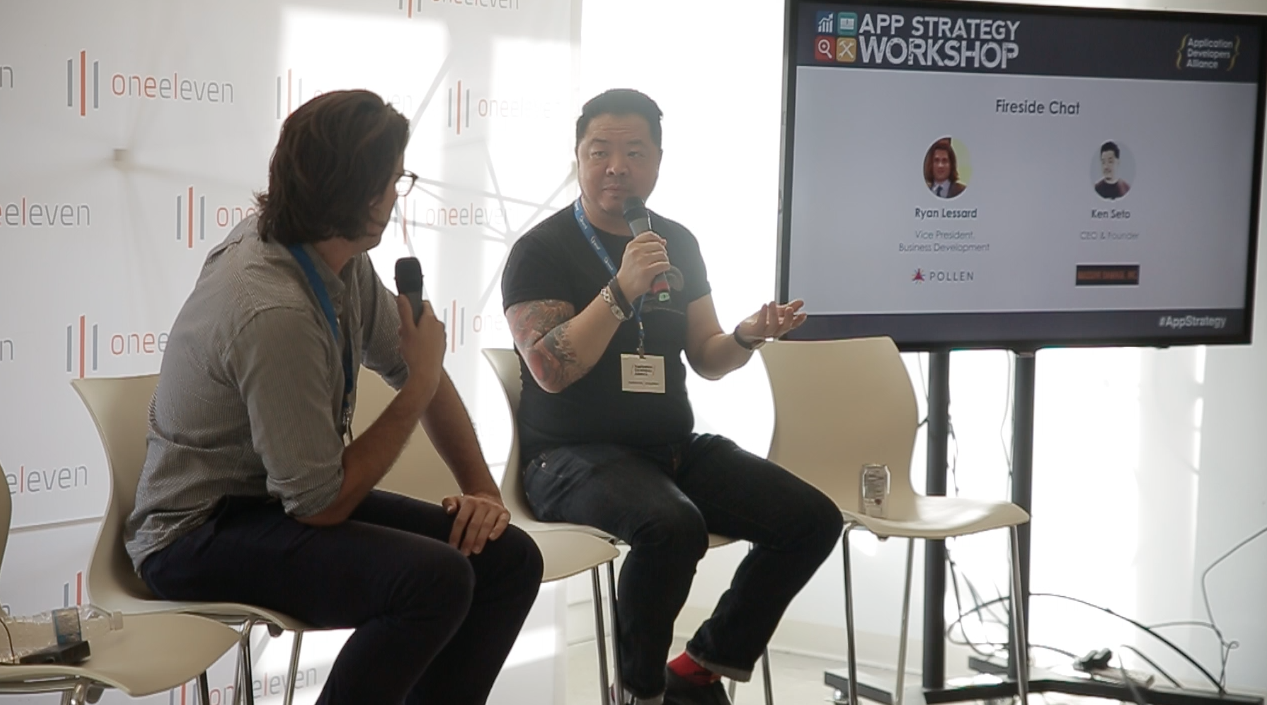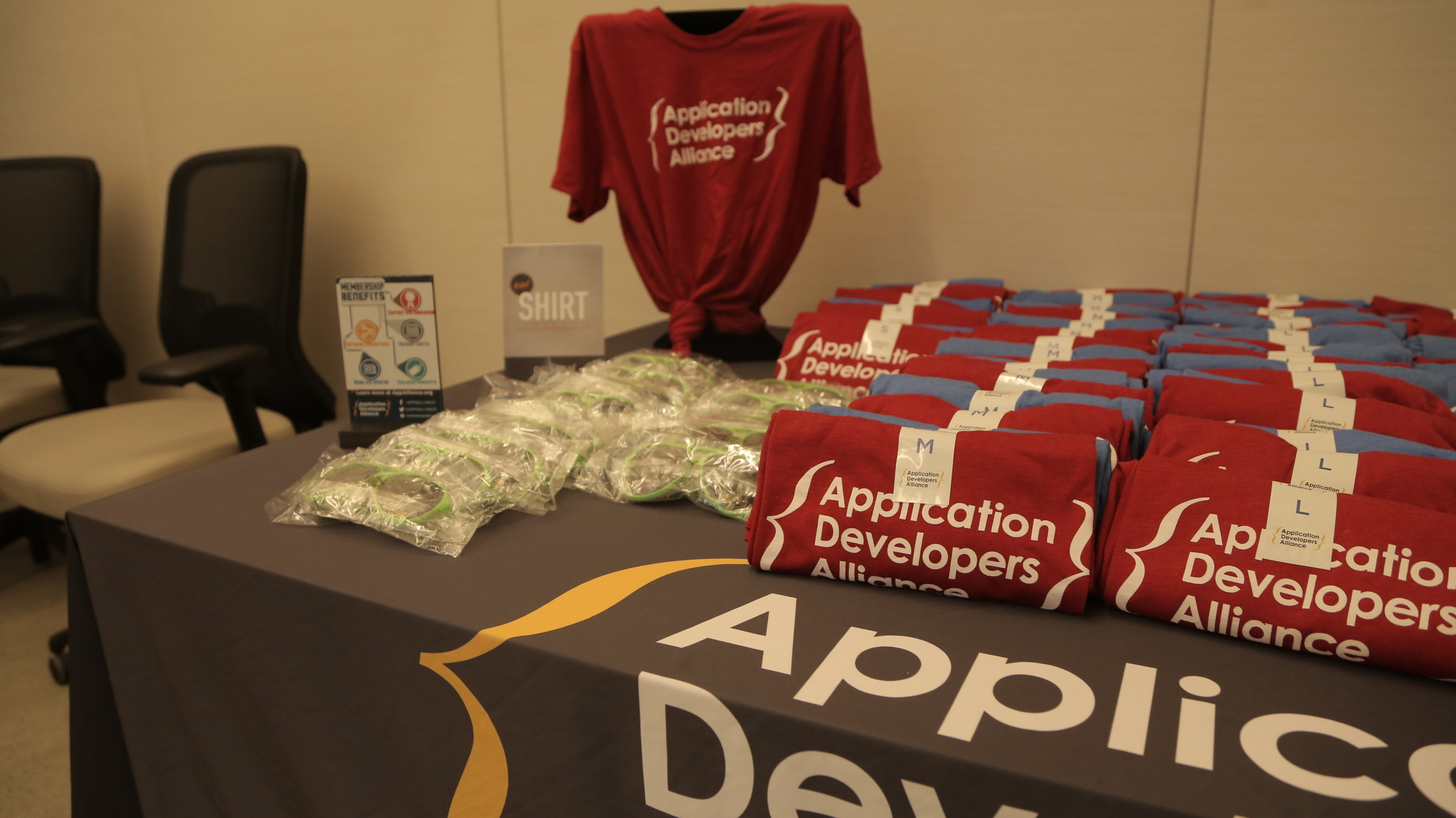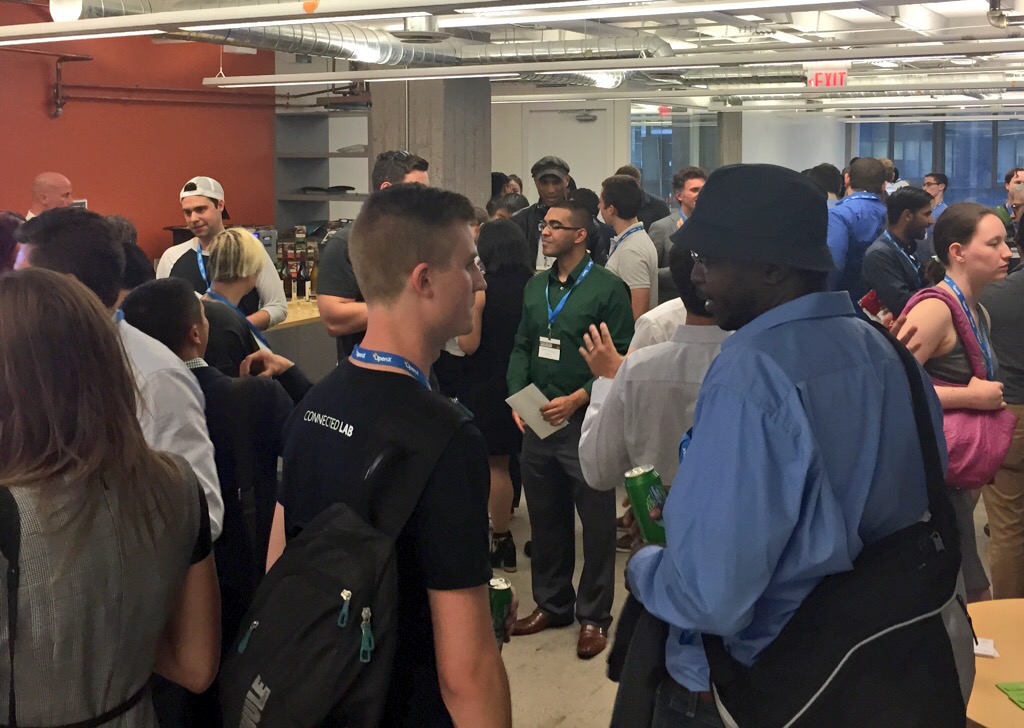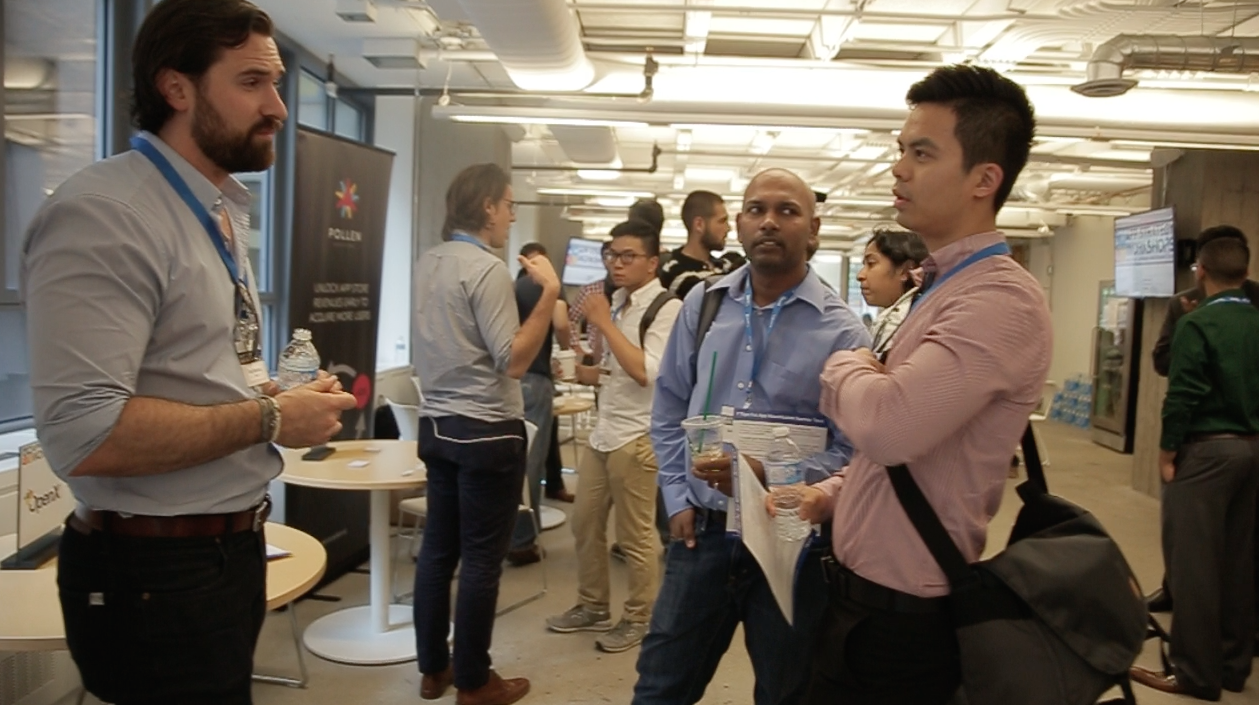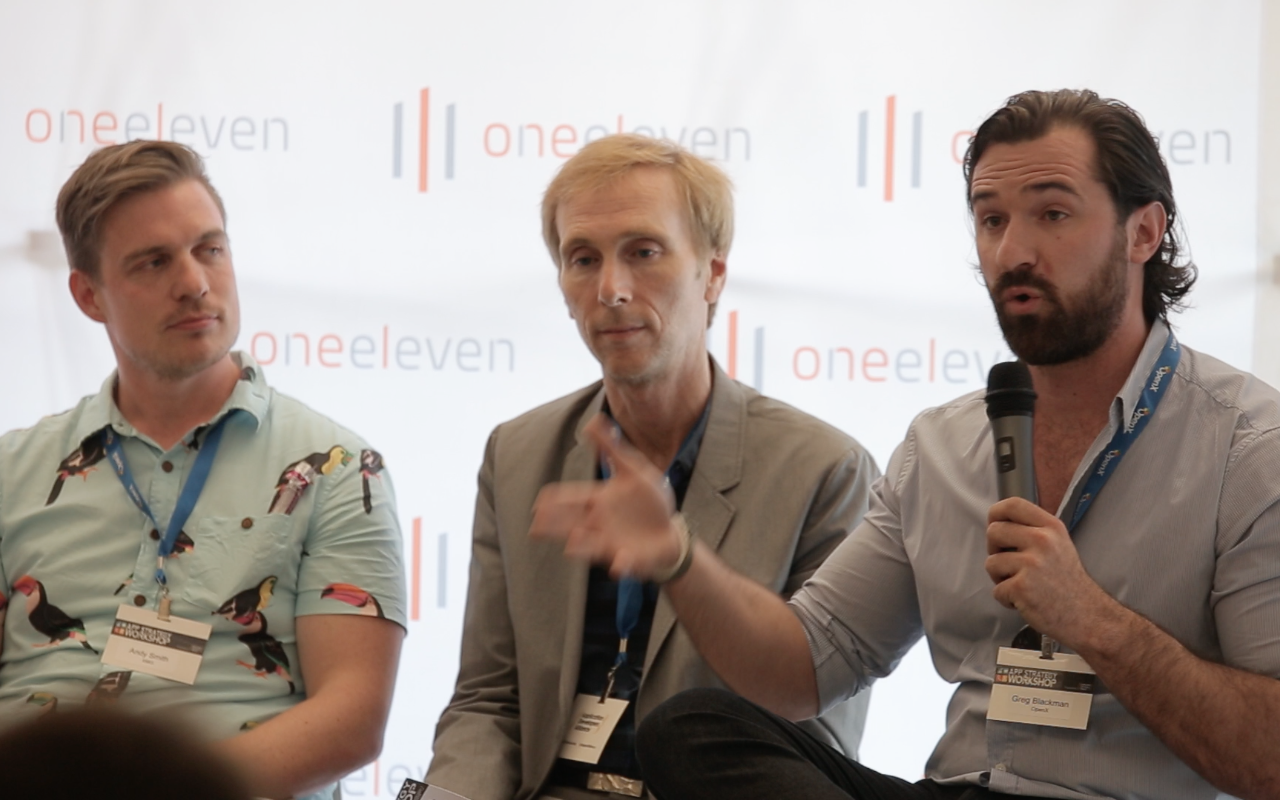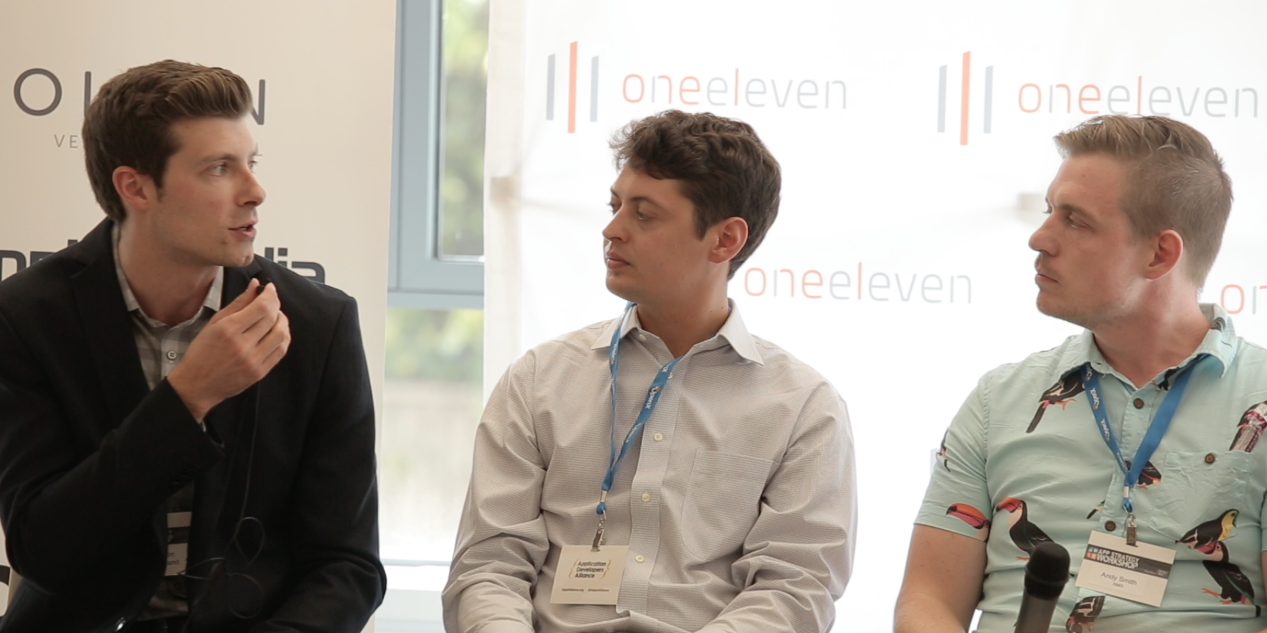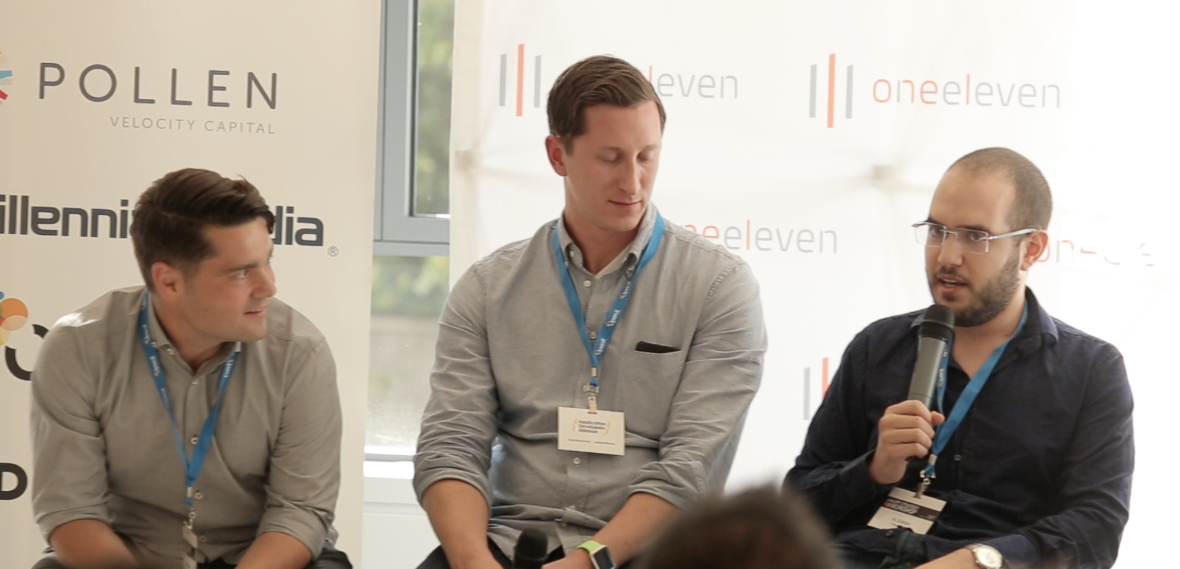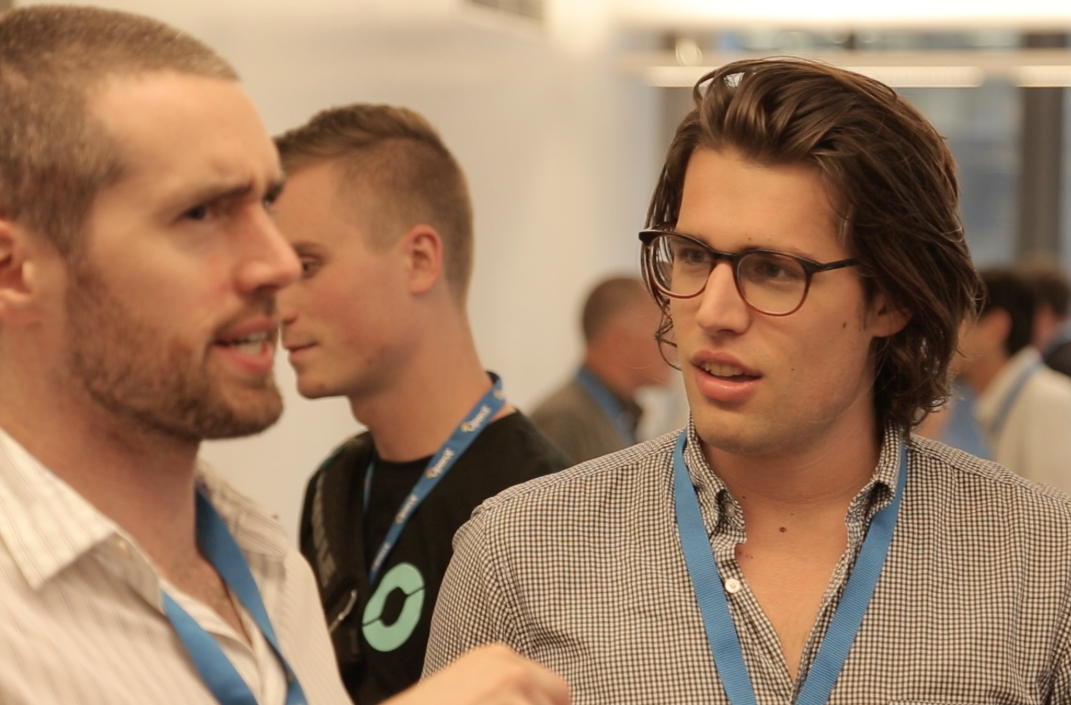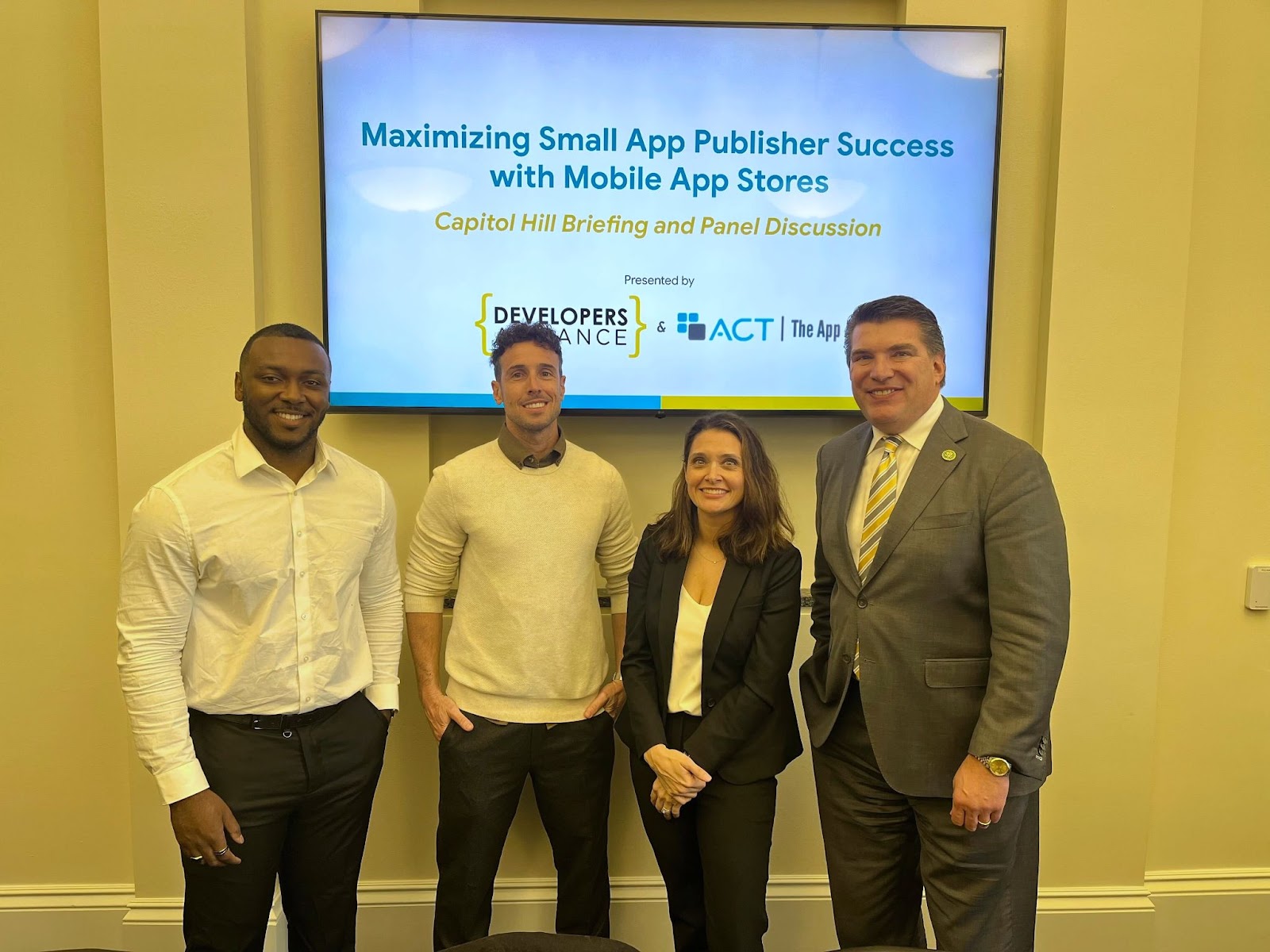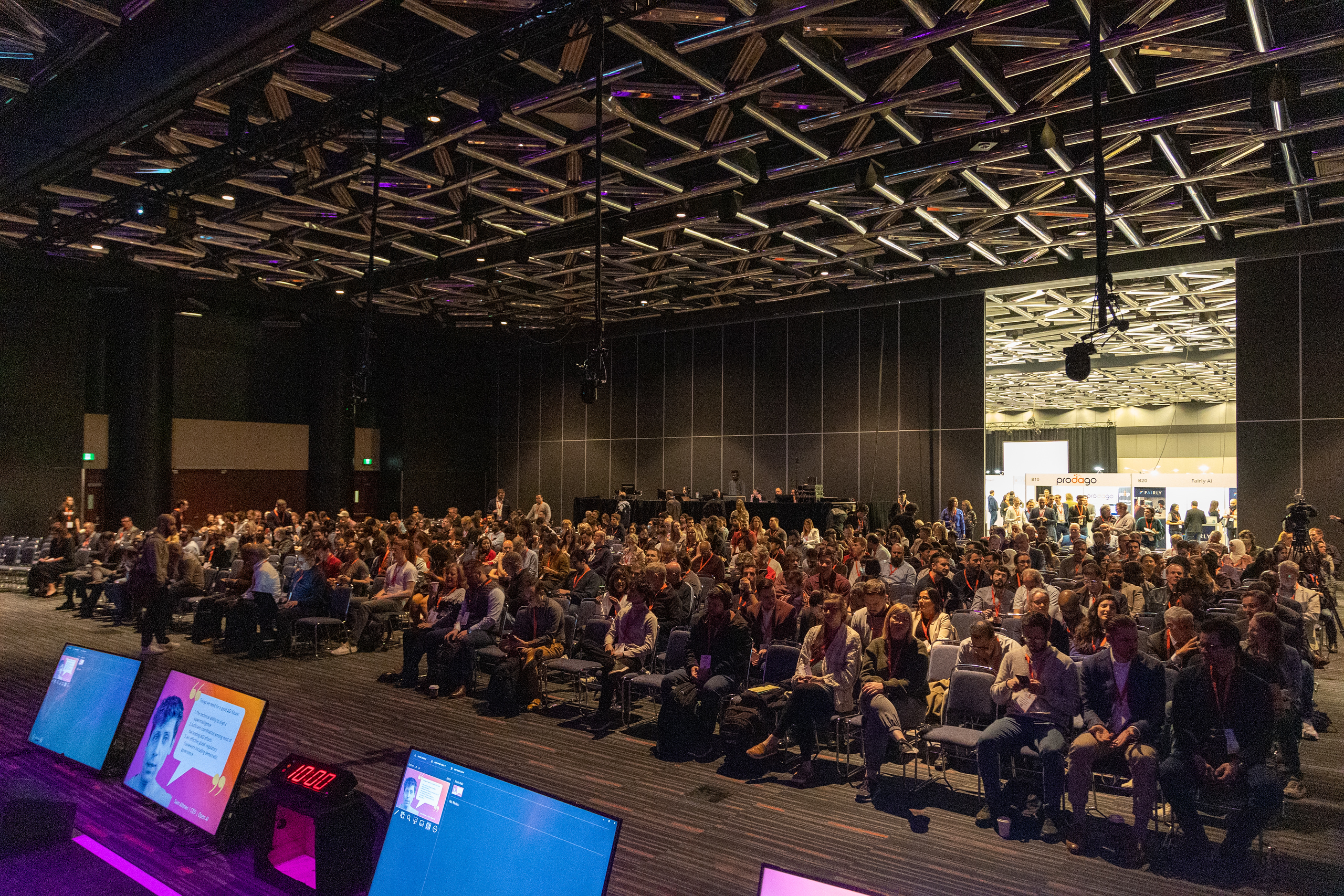It was the Apps Alliance’s first workshop in Canada and we couldn’t have been happier with the evening. Toronto is the third largest tech city in North America, and our attendees certainly showed us how they earned that title through their insightful questions, tweets, and conversations. With more than 150 attendees, it was standing room only to hear the lineup of expert panelists talk through the ins and outs of app development.
Panel: The Art of App Entrepreneurship
Moderated by Aaron Shapland of Vordik, the workshop started strong with a discussion between James Hughes (Millennial Media), Andy Smith (XMG), Gary Yentin (App Promo), and Greg Blackman (OpenX). Here are the key takeaways:
1.) Back to the Basics
Why are you building an app? What are your goals? Yentin emphasized having a strong understanding of your app’s fundamentals. To get started, Smith said to choose your app idea, see in what form it already exists, and figure out how to do it better. Learn from others’ successes and failures.
From L to R: Shapland, Hughes, Smith, Yentin, and Blackman
2.) Monetize From Day One
“All too often,” said Hughes, “I ask them, ‘How’re you going to make money?’ Think monetization prior to even developing the app. Use your research data to understand where your users are spending their time in your app and capitalize on that.”
Blackman added that monetization strategies can be a balancing act. “The more ads you show,” he said, “the more friction you cause for a user. However, that amount is the exact inverse of the money you will make. That is simply the grow path. You win some, lose some, win again, and then finally find your balance.”
3.) Know Your Market
Smith and Yentin agreed the U.S. is a wealthy market developers definitely want to target. One of the best ways to help succeed in this market is to start somewhere smaller: test the app in the Canadian or Australian markets, for example, as a test run. Figure out your bugs and get feedback from your users early on.
Hone in on your target audience and test your idea with real people to see if it gets a go #AppStrategy @AppsAlliance pic.twitter.com/b3nySaoKuk
— Mark Media (@markmediaco) July 14, 2015
Blackman mentioned a great way for developers to know their market is to focus on the UA tactic. For example, deep linking through SEO can be a main UA path, so developers should attach google analytics to track who is using the app and how.
4.) The Login Debate: Email vs. Social
Blackman added that one of the largest benefits to having users sign in with social is that developers receive a host of information. However, if you want to have a conversation with users, Yentin said acquiring users’ email addresses opens the door to one-on-one conversation.
Fireside Chat
Ryan Lessard of Pollen VC sat down with Massive Damage CEO Ken Seto, who’s been an entrepreneur for over eight years. Seto shared insight about funding, publishers, and getting a game featured in the app store.
Lessard and Seto discuss the hardships and rewards of building games.
Seto discussed how kickstarters are more useful for games than apps, since lots of apps end up being free anyway. When asked what his secret was, Seto said, “You have to build something that people want, of course. I started by building up our audience, our brand, and our fanbase.”
Along the way, Seto also tried using a publisher—a move he discourages in favor of self-publishing. “I got burned a little bit,” Seto admitted. “Our expectations and theirs were skewed going into it, and we didn’t have anything on paper as to what they would do for us in terms of promotion and UA.”
What Seto does recommend strongly is getting featured in the app store.
"Being featured by the Apple @AppStore is like someone hitting a magic button and you get drowned in cash."—@Massive_Damage #AppStrategy
— Apps Alliance (@AppsAlliance) July 14, 2015
But how can developers increase the likelihood of getting featured? Seto answered, “Know your audience, make a useful app, focus on timing, and stand out in the crowd.”
@kenseto recommends, among other things, UX, timing and making Apple devices look good to get featured. #AppStrategy @AppsAlliance 👍👍👍
— Fingerbakery (@fingerbakery) July 14, 2015
Panel: T.O. Tech—An inside look at the rapid growth of Toronto’s mobile marketplace
Moderated by Jason Silva (ServiceEcho), local Toronto tech company experts Rob Domagala (TWG), Al Zebian (Play Puddle), and Phil Jacobson (PumpUp) sat down to share the insider’s perspective on launching a tech company, how money plays, and best practices for testing. Here are the key takeaways:
1.) Surviving the Dark Moments
Jacobson: “It’s definitely an up-and-down journey. At one point, I found myself on friend’s couch with no money, I had just quit a full-time job i hadn’t even started yet, and I hadn’t launched yet. But I believed in what we had and stuck to our vision. Resilience is a big part of being an entrepreneur.”
Zebian: “I sunk $300,000 of my own money into my project without any UA strategy, which was ultimately our downfall. However, I learned from that mistake and kept moving forward.”
Domagala: “I struggled with the culture early on. The industry culture wasn’t really strong yet and there wasn’t a lot of camaraderie. It boils down to this: Who do you work with? How much fun can you have? What are you trying to build together?”
2.) How Money Plays
'In Toronto, people actually like building/creating things. We're not so focussed on money.' @AppsAlliance #AppStrategy #the6ix #6ixtech
— ♛♛ HK ♛♛ (@HollyKnowlman) July 14, 2015
Jacobson: “Be very goal driven. Push it into the market to test your assumptions. Spend a small amount building a minimum version and if it works—double down on it.”
Zebian: “I didn’t have a lot of money for turnaround, but sometimes having access to all that money isn’t always a good thing. It forced me to be resourceful.”
Domagala: “All you need is one particular hook. You don’t need to spend hundreds of thousands.”
Domagala, Zebian, and Jacobson share why Toronto is one of the best kept secrets in the tech industry.
3.) The Secrets of Testing
Jacobson: “Talk to the people using your product. We talk to hundreds of users per day. How do they view it, what do they get from it?”
Zebian: “We had a hunch about monetizing, so we ran a test. More often than not, if you spend time on a hypothesis you know is true, you can make the results even better.”
Domagala: “Local Toronto team Taplytics have strings of code you put into your app that lets you selectively test new features to handfuls of users without resubmitting updates to the app store.”
4.) Why Toronto Tech is Unique
Jacobson: “We’re hungry, resourceful, and relentless.”
Zebian: “We’ve got panache; we’re constantly building and creating things.”
Domagal: “We are humble. Such a Candian cliché, but it’s true. We’re not perfect but we’re humble.”
Wrapped up a great panel tonight on #AppStrategy! Always interesting, never long enough. Thanks to @AppsAlliance! pic.twitter.com/23irTpot23
— Aaron L. Shapland (@AaronShapland) July 14, 2015
We’d like to offer our thanks to our friends at Millennial Media, CTIA, OpenX, AdColony, Branch Metrics and Pollen for sponsoring this event. We hope everyone had a great time and look forward to seeing you at our upcoming events. To learn more about the Alliance’s App Strategy workshops and register for an event near you, click here.
PHOTO GALLERY
